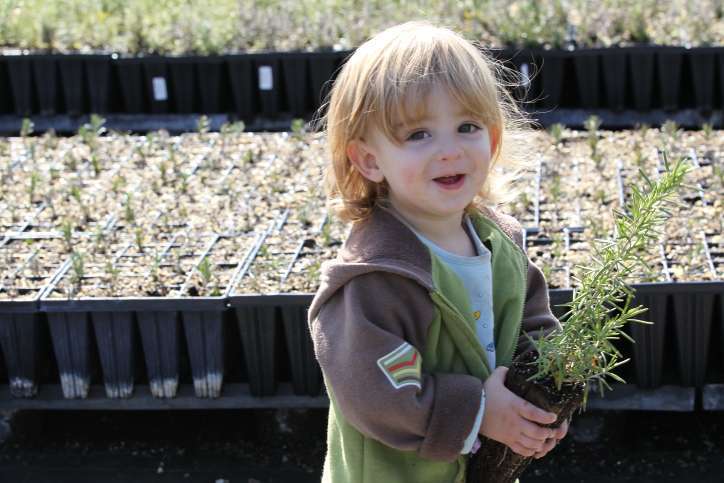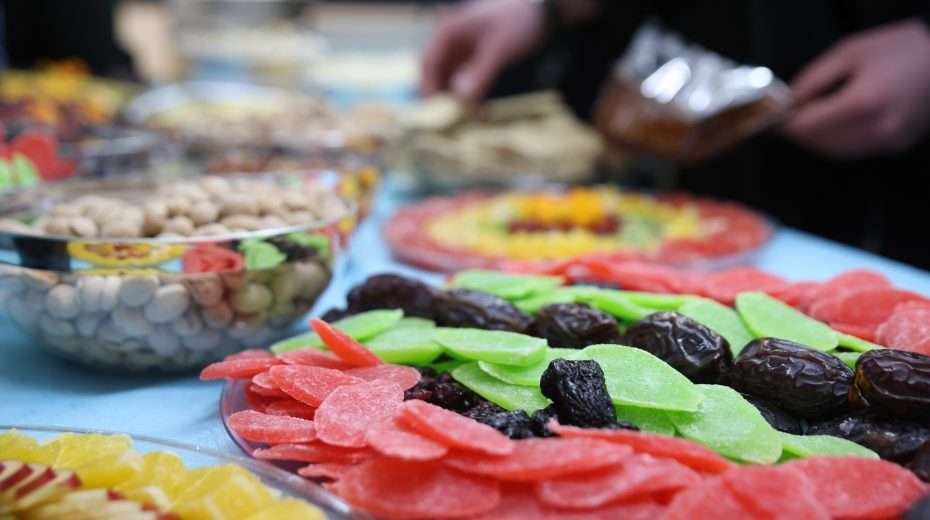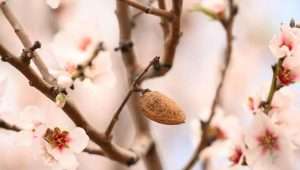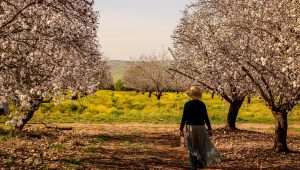This year we celebrate Tu Bishvat on Thursday, January 25, 2024, but like all Jewish days, it begins the evening before.
Tu Bishvat is the Jewish holiday of the “New Year of Trees.” It has its own meaningful and long-standing customs and traditions. Tu Bishvat is considered a “minor holiday” and reminds us that the sages made a comparison between people and trees. It is also a day to show appreciation for the environment and the world.
On Tu Bishvat, it is customary to eat fruits of the seven species for which the Land of Israel is praised: “…a land of wheat, barley, vines, fig trees and pomegranates, a land of olive trees and honey” ( Deuteronomy 8:8).
In modern-day Israel, Tu Bishvat is a type of Jewish Arbor Day – a day of environmental awareness when trees are planted in celebration.
Agricultural laws in Israel
Tu Bishvat has great significance in the biblical agricultural laws relevant to the Land of Israel.
To clear up a common misunderstanding, Tu Bishvat is actually the New Year of fruits, not trees. It is the New Year of Fruits, as fruits that developed before Tu Bishvat are considered to have grown in the previous agricultural year, while fruits that developed after that belong to the new year.

Why is that important? Because in the Land of Israel tithes must be paid separately for each year of harvest. In addition, different tithes are levied in different years of the seven-year Sabbath cycle. In years 1, 2, 4 and 5 a second tithe called “Ma’aser Sheini” is set aside. In Temple times it or its equivalent was consumed in Jerusalem, whereas today it is redeemed into a coin that is later destroyed. In years 3 and 6, the “poor man’s tithe” (“Ma’aser Ani”) is separated. And fruits that grow in the 7th year are sacred Shmita fruits and are not harvested.
When eating fruits grown in Israel, they must be tithed properly. Otherwise the fruits are not “kosher.”
Inspiration
Aside from its agricultural significance, this day calls us to harness the power of new beginnings and take the first step to initiate “spring” in our lives.
On Tu Bishvat we have the custom of eating fruits such as figs, pomegranates, dates and olives, but if you look around you will see that there is no fruit on the trees yet! We are in the middle of winter; Isn’t this celebration a little premature? The message of Tu Bishvat is that although the fruits have not yet grown, the process that produces them has already begun!
For people, our fruits are our actions and achievements – and they too have their origins. You start with an idea. Rabbi Nachman of Breslov taught: “A person is not only where he is physically, but also where he is in thought.” When an idea crystallizes in our mind, we are already halfway to its realization. A message from Tu Bishvat is that all great achievements begin with a compelling idea and a goal.
In the spirit of the holiday, we are offering our readers a special offer in our JLMBOX shop: 1 liter of Canaan olive oil + 2 kg of Medjool dates together for only 50 euros!
Order here now!















